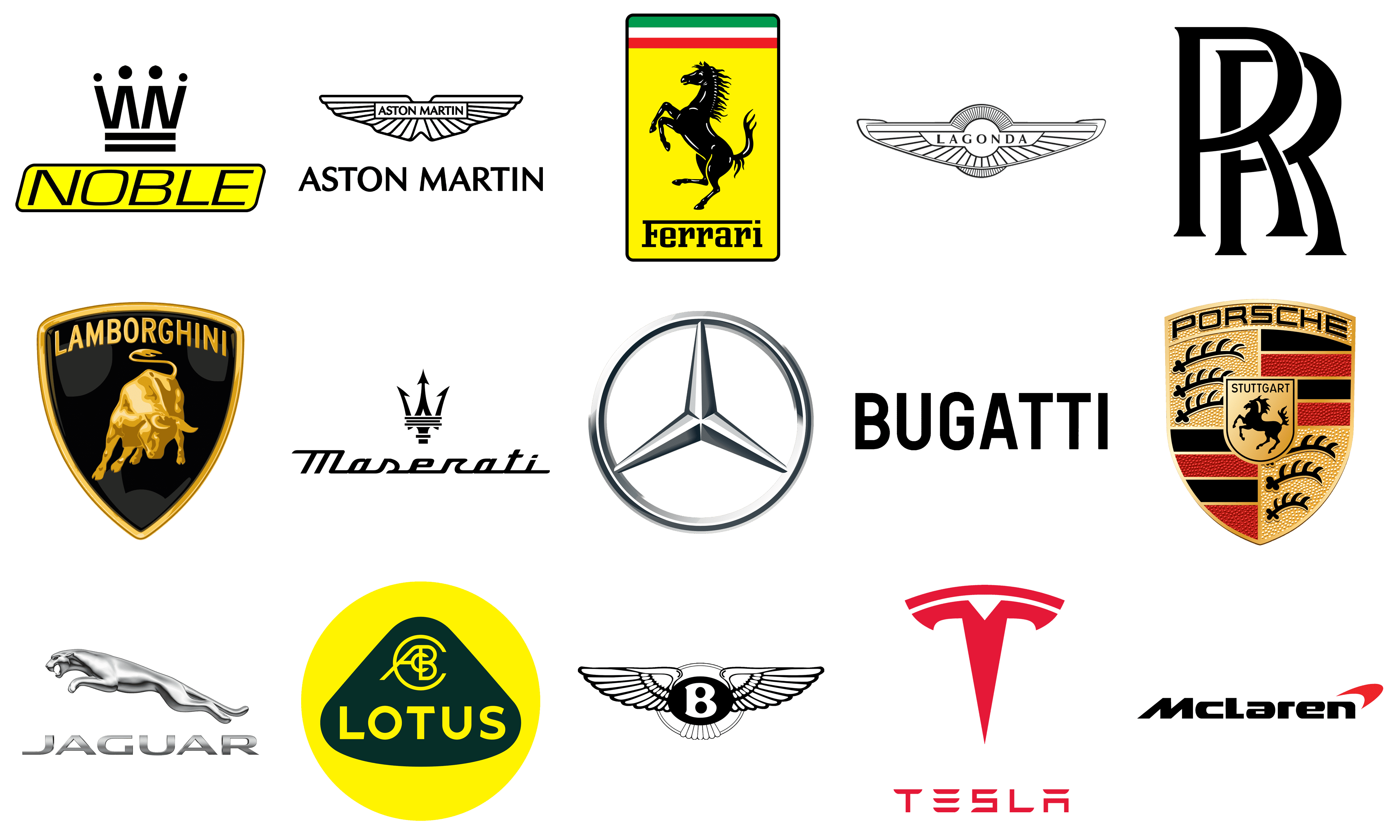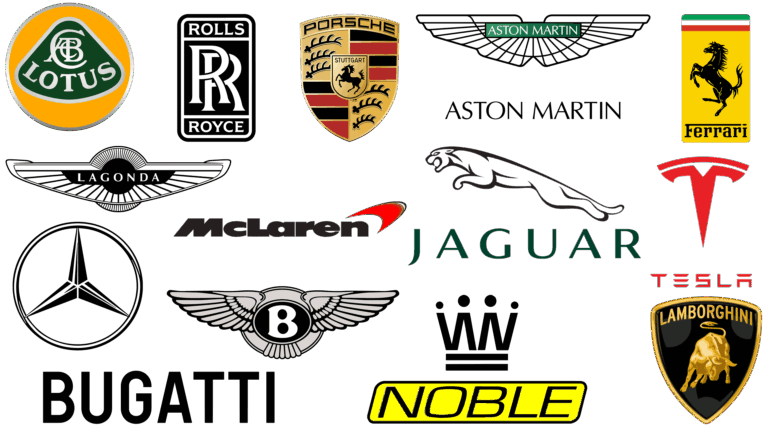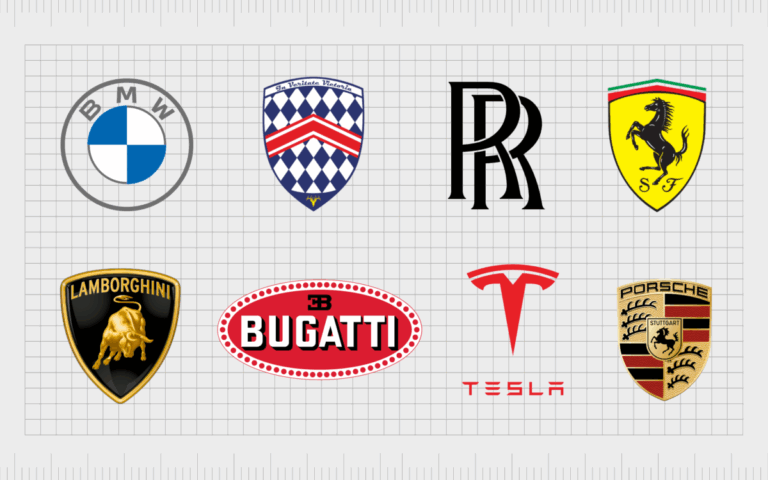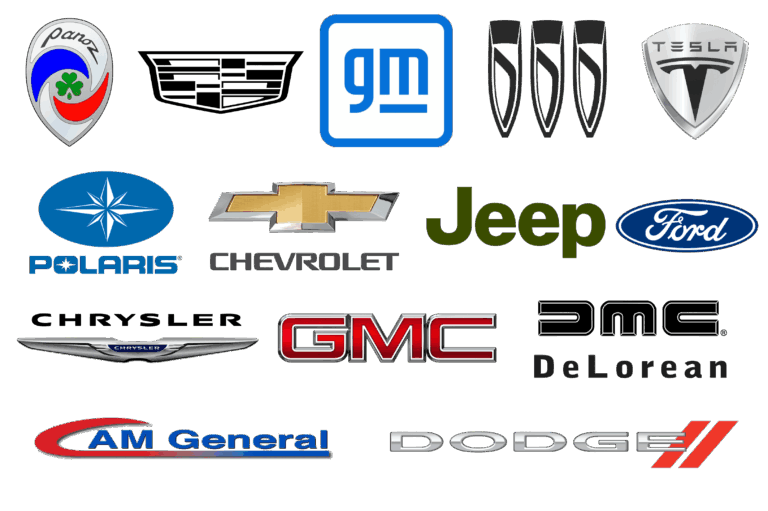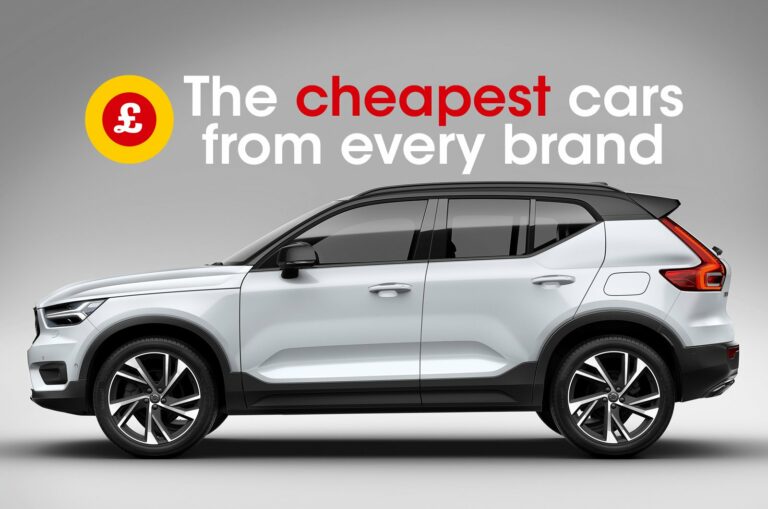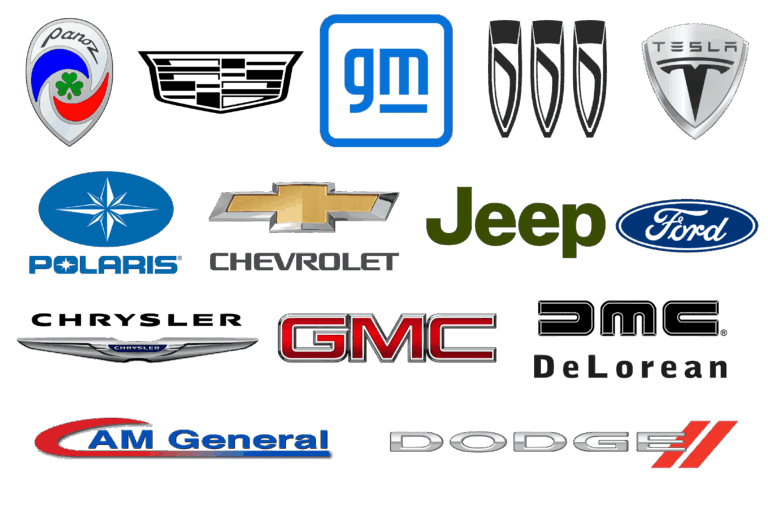Car Brands With The Best Warranty: Your Ultimate Guide to Peace of Mind
Car Brands With The Best Warranty: Your Ultimate Guide to Peace of Mind cars.truckstrend.com
Purchasing a new vehicle is one of the most significant investments many people make. Beyond the initial sticker price, factors like reliability, fuel efficiency, and features play a crucial role. However, one often-overlooked yet critically important aspect that can save you thousands of dollars and countless headaches down the road is the manufacturer’s warranty. A robust car warranty acts as a financial safety net, covering the costs of unexpected repairs and giving you unparalleled peace of mind.
Not all warranties are created equal. While most new cars come with some form of coverage, the duration, mileage limits, and scope of protection can vary dramatically from one brand to another. Understanding these differences is paramount to making an informed decision, ensuring your investment is protected long after you drive off the lot. This comprehensive guide will delve into what makes a warranty "the best," highlight the car brands leading the pack, and provide practical advice for maximizing your coverage.
Car Brands With The Best Warranty: Your Ultimate Guide to Peace of Mind
Understanding Car Warranties: What You Need to Know
Before diving into specific brands, it’s essential to grasp the different types of warranties and key terms associated with them. This knowledge empowers you to compare offerings effectively.
Types of Warranties:
- Bumper-to-Bumper Warranty (Basic Limited Warranty): This is the most comprehensive coverage, often referred to as the "new vehicle limited warranty." It covers most components between the vehicle’s front and rear bumpers, excluding typical wear-and-tear items like tires, brake pads, and wiper blades. This warranty typically has a shorter duration than a powertrain warranty.
- Powertrain Warranty: This specifically covers the most expensive components of your vehicle: the engine, transmission, and drivetrain (which includes the axles, driveshafts, and differentials). Since these are critical and costly systems, powertrain warranties usually last longer than bumper-to-bumper warranties.
- Corrosion/Rust-Through Warranty: This covers body panel corrosion that results in a hole due to rust, often for a longer period than other warranties.
- Roadside Assistance: Many new car warranties include complimentary roadside assistance for a set period, covering services like towing, jump-starts, flat tire changes, and fuel delivery.
- Hybrid/EV Component Warranty: For hybrid and electric vehicles, there’s often a separate warranty specifically covering the battery pack, electric motors, and other hybrid/EV-specific components, which can be significantly longer due to the high cost and specialized nature of these parts.
- Emissions Warranty: Mandated by federal law, this covers parts related to vehicle emissions, ensuring they meet environmental standards.

Key Terms to Look For:
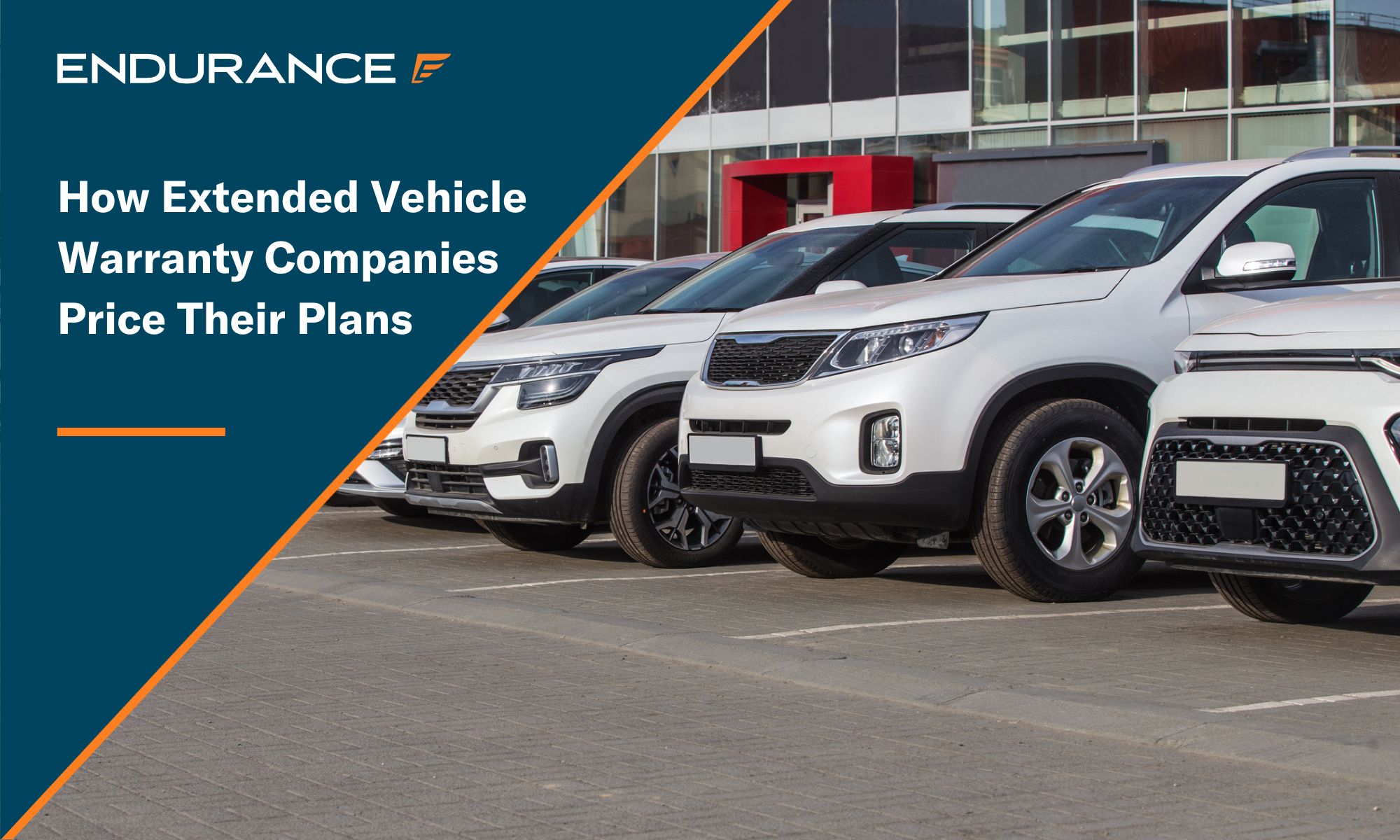
- Duration (Years/Miles): This specifies how long the warranty is active, either by time (e.g., 3 years) or mileage (e.g., 36,000 miles), whichever comes first.
- Deductible: Some warranties, especially extended or certified pre-owned ones, may require you to pay a small fee (deductible) each time you bring your car in for a covered repair.
- Exclusions: Carefully read what the warranty doesn’t cover. Common exclusions include damage from accidents, lack of maintenance, unauthorized modifications, or normal wear and tear.
- Transferability: A critical factor for resale value. Does the warranty transfer to a second owner? Some long-term warranties (especially powertrain) may shorten significantly or become void when the car is sold.
- Certified Pre-Owned (CPO) Warranties: These are manufacturer-backed warranties for used vehicles that have undergone a rigorous inspection. They often extend the original factory warranty or offer a new, limited warranty.
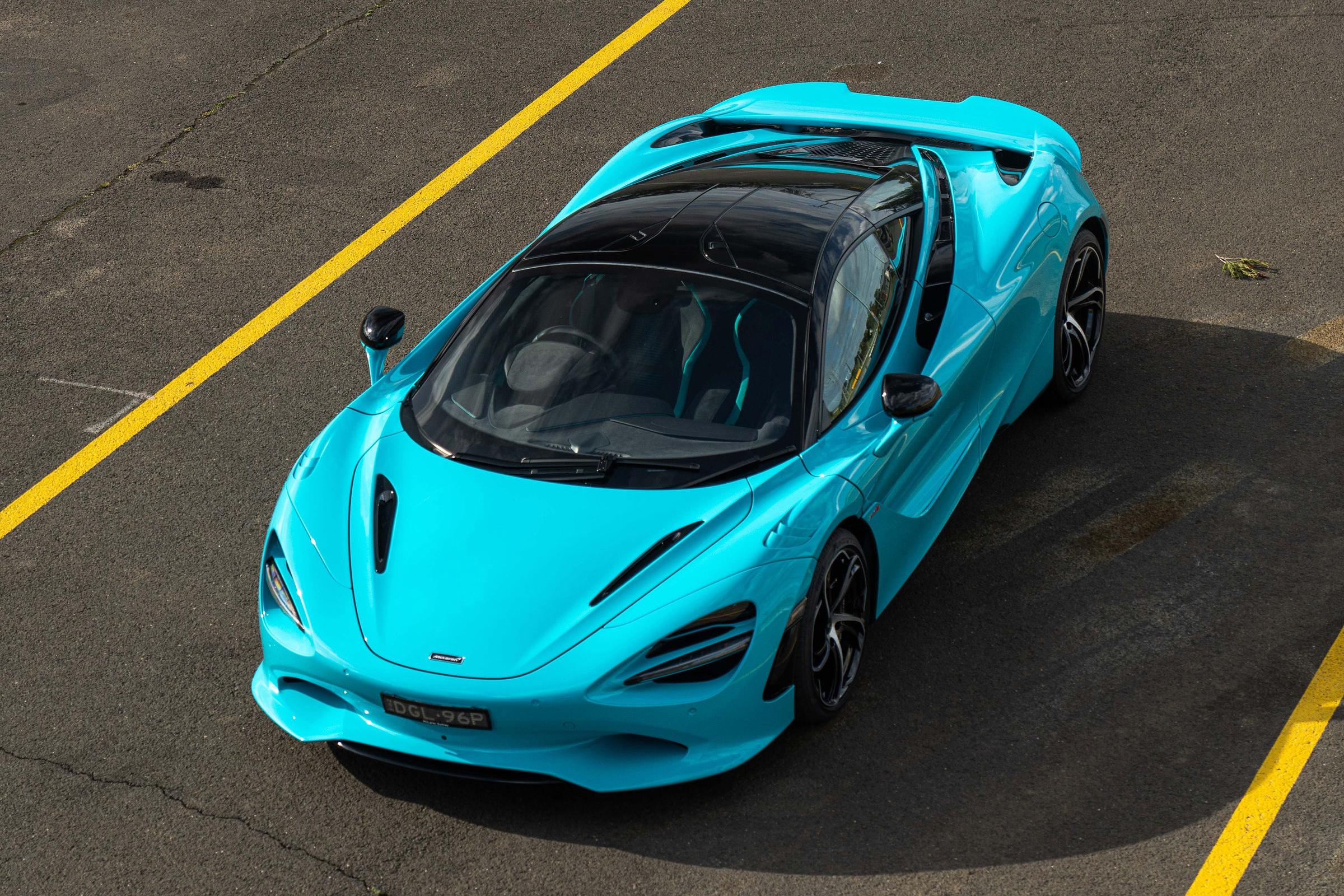
Why a Great Warranty Matters: Beyond the Sticker Price
A robust warranty is more than just a marketing gimmick; it’s a fundamental aspect of smart car ownership.
- Financial Protection: The most obvious benefit. Unexpected major repairs (engine, transmission) can cost thousands. A warranty shields you from these crippling expenses.
- Peace of Mind: Knowing that significant mechanical issues are covered allows you to enjoy your vehicle without constant worry about potential repair bills.
- Increased Resale Value: A transferable warranty is a significant selling point for prospective buyers, as it reduces their risk and makes your used car more attractive.
- Trust in the Manufacturer’s Quality: Brands offering long warranties implicitly demonstrate confidence in their vehicle’s build quality and reliability.
- Reduced Ownership Costs: Over the lifespan of the warranty, the potential savings on repairs can significantly lower your overall cost of ownership.
Top Car Brands Known for Excellent Warranties
When it comes to offering exceptional warranty coverage, a few brands consistently stand out, often providing protection that far exceeds the industry standard.
1. Hyundai
Hyundai revolutionized the automotive industry with its "America’s Best Warranty" program. They remain a leader in long-term coverage.
- New Vehicle Limited Warranty (Bumper-to-Bumper): 5 years / 60,000 miles
- Powertrain Limited Warranty: 10 years / 100,000 miles (for original owner)
- Anti-Perforation Warranty: 7 years / unlimited miles
- Roadside Assistance: 5 years / unlimited miles
- Hybrid/EV Battery Warranty: 10 years / 100,000 miles (varies by state/model)
Key Note: The impressive 10-year/100,000-mile powertrain warranty is a highlight, but it’s crucial to remember that this specific coverage typically applies only to the original owner. If the car is sold, the powertrain warranty usually reverts to 5 years/60,000 miles for subsequent owners.
2. Kia
As Hyundai’s sister company, Kia offers an identical and equally impressive warranty package, reinforcing their commitment to quality and customer satisfaction.
- New Vehicle Limited Warranty (Bumper-to-Bumper): 5 years / 60,000 miles
- Powertrain Limited Warranty: 10 years / 100,000 miles (for original owner)
- Anti-Perforation Warranty: 5 years / 100,000 miles
- Roadside Assistance: 5 years / 60,000 miles
- Hybrid/EV Battery Warranty: 10 years / 100,000 miles (varies by state/model)
Key Note: Like Hyundai, Kia’s 10-year/100,000-mile powertrain warranty is a significant draw, but its transferability to subsequent owners is limited, typically reverting to 5 years/60,000 miles.
3. Mitsubishi
Mitsubishi also competes fiercely in the warranty game, offering a very competitive long-term powertrain warranty.
- New Vehicle Limited Warranty (Bumper-to-Bumper): 5 years / 60,000 miles
- Powertrain Limited Warranty: 10 years / 100,000 miles (for original owner)
- Anti-Corrosion/Perforation Limited Warranty: 7 years / 100,000 miles
- Roadside Assistance: 5 years / unlimited miles
Key Note: Mitsubishi’s powertrain warranty, while generous, also primarily benefits the original owner, shortening significantly if the vehicle is sold.
4. Genesis
As Hyundai’s luxury arm, Genesis extends similar robust warranty coverage, combined with premium services, offering an exceptional value proposition in the luxury segment.
- New Vehicle Limited Warranty (Bumper-to-Bumper): 5 years / 60,000 miles
- Powertrain Limited Warranty: 10 years / 100,000 miles (for original owner)
- Anti-Perforation Warranty: 7 years / unlimited miles
- Roadside Assistance: 5 years / unlimited miles
- Complimentary Scheduled Maintenance: 3 years / 36,000 miles (includes oil changes, tire rotations)
- Service Valet: Complimentary pick-up and delivery for service appointments.
Key Note: Genesis mirrors its parent company’s leading powertrain warranty, with the same original owner limitation. However, the added complimentary maintenance and service valet enhance the overall ownership experience significantly.
Factors to Consider Beyond Warranty Length
While a long warranty is appealing, it’s just one piece of the puzzle. Consider these additional factors for a holistic view of vehicle ownership:
- Reliability Ratings: A car with excellent reliability might need a warranty less often. Brands like Toyota and Lexus, while not always offering the longest warranties, are renowned for their bulletproof reliability, which can be just as valuable.
- Cost of Parts & Labor (Post-Warranty): Once the warranty expires, what are the typical repair costs? Researching common issues and part prices for your desired model is wise.
- Service Network & Dealer Reputation: Is it easy to get warranty work done? Are the dealerships reputable and customer-friendly?
- Specific Exclusions: Always scrutinize the fine print. Are there unexpected exclusions for components you assume would be covered?
- Your Driving Habits: If you drive significantly more than average, a mileage-based warranty might expire sooner than a time-based one.
- Intended Ownership Period: If you plan to sell the car before the bumper-to-bumper warranty expires, the powertrain warranty’s transferability might be less critical.
How to Maximize Your Car Warranty
To ensure your warranty remains valid and you can fully utilize its benefits:
- Read Your Warranty Booklet: Understand exactly what’s covered, what’s excluded, and your responsibilities as the owner.
- Follow the Manufacturer’s Maintenance Schedule: This is paramount. Skipping recommended services (oil changes, fluid checks, etc.) can void your warranty, especially if a failure is attributed to lack of maintenance.
- Keep Meticulous Records: Retain all service receipts, detailing the date, mileage, and work performed, regardless of where you get the service done.
- Don’t Modify Your Vehicle Extensively: Aftermarket parts or significant modifications (e.g., engine tuning, suspension changes) can void your warranty for related component failures.
- Address Issues Promptly: Don’t ignore warning lights or unusual noises. Addressing small problems early can prevent them from escalating into major, potentially uncovered, failures.
- Understand CPO Warranties: If buying used, a Certified Pre-Owned vehicle from a dealership offers manufacturer-backed warranty coverage, providing much more security than a standard used car purchase.
Challenges and Considerations
- Original Owner Limitations: As noted, many of the longest powertrain warranties are significantly reduced for subsequent owners, impacting resale value unless specifically highlighted.
- Wear and Tear Exclusions: Remember that warranties generally don’t cover normal wear-and-tear items like tires, brake pads, clutches, wiper blades, or routine maintenance.
- Dealer Interpretation: While most reputable dealerships honor warranties, inconsistent interpretations or difficulties with claims can sometimes arise.
- Geographic Limitations: While rare for new car warranties, some extended service contracts might have limitations on where repairs can be performed.
Car Brands With The Best Warranty: Quick Comparison Table
This table summarizes the key warranty information for the leading brands discussed. Please note: Warranty details can change, always verify the latest information with the manufacturer or dealership.
| Car Brand | Basic/Bumper-to-Bumper Warranty | Powertrain Warranty | Roadside Assistance | Hybrid/EV Components (if applicable) | Key Notes |
|---|---|---|---|---|---|
| Hyundai | 5 years / 60,000 miles | 10 years / 100,000 miles* | 5 years / Unlimited miles | 10 years / 100,000 miles (varies) | *Powertrain shortens for subsequent owners. |
| Kia | 5 years / 60,000 miles | 10 years / 100,000 miles* | 5 years / 60,000 miles | 10 years / 100,000 miles (varies) | *Powertrain shortens for subsequent owners. |
| Mitsubishi | 5 years / 60,000 miles | 10 years / 100,000 miles* | 5 years / Unlimited miles | N/A (for most models) | *Powertrain shortens for subsequent owners. |
| Genesis | 5 years / 60,000 miles | 10 years / 100,000 miles* | 5 years / Unlimited miles | 10 years / 100,000 miles | *Powertrain shortens for subsequent owners. Includes 3yr/36k complimentary maintenance. |
Conclusion
Choosing a car with an excellent warranty is a strategic decision that offers tangible benefits far beyond the initial purchase. It’s a commitment from the manufacturer, a testament to their confidence in their product, and most importantly, a robust financial shield for you. While brands like Hyundai, Kia, Mitsubishi, and Genesis lead the charge with their industry-topping powertrain warranties, remember to weigh these offerings against other crucial factors like reliability, service network, and your long-term ownership plans. By prioritizing a strong warranty, you’re not just buying a car; you’re investing in years of confident, worry-free driving.
Frequently Asked Questions (FAQ)
Q1: What’s the main difference between a bumper-to-bumper and a powertrain warranty?
A1: A bumper-to-bumper (or basic limited) warranty is comprehensive, covering most vehicle components excluding wear-and-tear items. A powertrain warranty is more specific, covering only the engine, transmission, and drivetrain components, which are typically the most expensive to repair. Powertrain warranties are usually longer in duration.
Q2: Does a car warranty cover everything?
A2: No, a car warranty does not cover everything. It typically excludes normal wear-and-tear items (like tires, brake pads, wiper blades, filters), damage from accidents, lack of proper maintenance, misuse, or unauthorized modifications. Always read your warranty booklet for specific exclusions.
Q3: Can I get my car serviced anywhere and still maintain my warranty?
A3: Yes, under the Magnuson-Moss Warranty Act, you can have your car serviced by any qualified independent mechanic without voiding your factory warranty, as long as they use original equipment (OE) or equivalent parts and follow the manufacturer’s recommended maintenance schedule. However, it’s crucial to keep detailed records (receipts, dates, mileage) of all services performed.
Q4: What voids a car warranty?
A4: Common actions that can void a car warranty include:
- Failure to follow the manufacturer’s recommended maintenance schedule.
- Using aftermarket parts that cause damage.
- Modifying the vehicle extensively (e.g., engine tuning, major suspension changes).
- Racing or off-roading (if the vehicle isn’t designed for it).
- Salvage title or total loss declaration.
- Odometer tampering.
Q5: Are Certified Pre-Owned (CPO) warranties as good as new car warranties?
A5: CPO warranties are an excellent option for used cars, offering manufacturer-backed coverage and a rigorous inspection process. They often extend the original factory warranty or provide a new, limited warranty. While they may not be as extensive as a new car’s bumper-to-bumper warranty, they offer significantly more protection than buying a standard used car "as-is."
Q6: Do luxury cars typically have better warranties?
A6: Not necessarily in terms of sheer length. While luxury brands like Genesis (part of Hyundai) offer industry-leading warranties, many premium brands (e.g., BMW, Mercedes-Benz, Audi, Lexus) typically offer a 4-year/50,000-mile bumper-to-bumper warranty, which is solid but not as long as the 10-year/100,000-mile powertrain offered by the brands highlighted in this article. However, luxury warranties often come with added perks like complimentary maintenance or roadside assistance.
